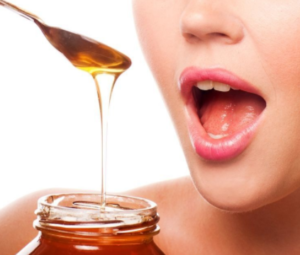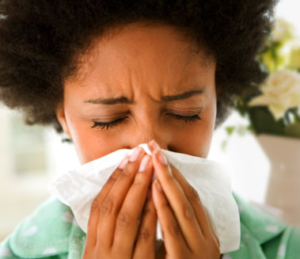The Health Benefits Of Honey Explained: Honey For Health!
Table of Contents
- How Is Honey Made?
- Honey For Weight Loss Explained
- Honey For Antioxidant Benefits Explained
- Honey To Promote Sleep Explained
- Honey As A Natural Cure-All: Allergies, Cough Syrup & More
- Raw Honey vs. Processed Honey Explained
- Organic Honey vs. Inorganic Honey
- Honey For Healthier Skin & Hair Explained
- Conclusion
I have always had a bit of a sweet tooth, and when I say a bit, I mean a lot, what can I say, I tend to enjoy the sweeter things in life. As a child my kitchen cabinet was always packed with tasty sweet treats from cookies to candies, you name it, I had em. While my sugar addiction may have tasted irresistibly sweet, it was not so sweet for my health.
At a recent doctors appointment, I learned my body was suffering from the effects of an overly sugary diet. My doctor explained that I needed to reduce the amount of sugar in my diet, and fast. I know this may sound extreme, but in that moment, I panicked, how would I get by without my daily sweet fix?
After a couple of hours and a relaxing walk in the park, I decided to start researching healthy alternatives to sugar, and that is where my love affair with honey began. Still not convinced that honey is the best choice for you? To be honest, I wasn’t convinced at first either, but don’t worry – I’ll share what I’ve learned here in our Health Benefits of Honey feature!
How Is Honey Made?
We are all familiar with the amber filled jars of honey sold on the gleaming shelves of our local supermarket, but it takes a lot for honey to make it to shelves. The honey making process begins with flowers – flower nectar to be exact. The nectar of flowers is connected by worker bees (yes those same bee’s we all live in fear of getting stung by), which gets the ball rolling.
Next, the nectar is broken down into simple sugars and prepared for storage in the honeycomb. The honeycomb’s unique geometric structure features an array of hexagonal shaped cells formed between thin vertical walls, which, when combined with the bee’s constant wing fanning, causes extra liquid to evaporate. This produces a sweet, liquid honey. The luscious liquid is then harvested by beekeepers, who scrape off wax caps.
The honeycomb frames are placed into a machine called an extractor, which uses a centrifuge to spin the frames at high-speed, forcing honey out of the comb. The honey is then strained to remove undesirable molecules. To simplify this process, some will heat the honey when straining, but the honey’s natural liquid texture remains unaltered. The honey is then bottled, labeled and shipped to a market near you.
Honey For Weight Loss Explained
 Nutritionist and author Mike Mcinnes explain that when it comes to honey and weight loss, it’s all about metabolic force. Honey triggers changes in your digestive system that helps to ensure that you don’t give into those sweet tooth cravings you work so hard to avoid. If that wasn’t good enough for you, Mcinnes says that honey can even help to burn fat while you rest.
Nutritionist and author Mike Mcinnes explain that when it comes to honey and weight loss, it’s all about metabolic force. Honey triggers changes in your digestive system that helps to ensure that you don’t give into those sweet tooth cravings you work so hard to avoid. If that wasn’t good enough for you, Mcinnes says that honey can even help to burn fat while you rest.
Table sugar is high in calories yet contains little to no nutritional value – otherwise known as ’empty calories.’ While sugar itself contains no fat, studies have shown that your liver begins to turn excess sugar into fat. When your liver has reached its sugar storage capacity, it begins to convert the excess sugar into fatty acids, which are then released into your bloodstream. They are then carried through the body and stored wherever your body tends to store fat cells.
Honey can be used to as a natural sweetener for almost all your sweet tooth needs, whether it be cereal or baking, honey has you covered. Unlike table sugar, honey is a great source of nutrients! We tend to deplete our natural nutrients when dissolving sugar into unnecessary fats, which causes us to gain weight. Honey, which has a high nutritional value does not create the same problems, and therefore, when substituted for sugar can help us lose weight.
Honey For Antioxidant Benefits Explained
Honey is beneficial for more than just weight loss. Replacing sugar with honey in your diet may help to boost your immune system. According to researchers, honey contains varying levels of polyphenols, a powerful type of antioxidant linked to the reduction of cancer and heart disease.
Polyphenols are found in fruits, veggies, olive oil and of course honey! Researchers fed 29 participants 4 tablespoons of buckwheat honey as a part of their regular diets over the course of a 29-day study. Blood samples taken at the start and end of the experiment illustrated a direct link between the consumption of honey and levels immune system boosting polyphenols.
Honey To Promote Sleep Explained
Ready for another honey-health hack? Honey can be used as a sleep enhancer and natural sleep aid. Up to 6% of the human population suffers from insomnia and struggle to sleep at night. So how does it work? Raw honey is naturally rich in fructose and glucose. Fructose is stored in our livers as glycogen, which is used to fuel your brain while you sleep. While fructose is digested slowly, glucose provides your body with a small burst of energy and is important to get good quality sleep. Fructose also helps to slow down our body’s ability to process glucose.
Together, glucose and fructose help to stabilize glucose levels in your bloodstream, helping you to obtain the good night of sleep your body deserves. Taking a teaspoon of raw unpasteurized honey about 30 minutes before you go to sleep can make sure that every night is filled with sweet dreams.
Honey As A Natural Cure-All: Allergies, Cough Syrup & More
Allergy relief medications can help to reduce allergy symptoms but often leave you feeling tired and drowsy. Luckily, a better solution exists. Honey can be used as an all natural allergy relief. Similar to allergy shots, honey helps to immunize you from seasonal allergens such as pollen, trees, and grass. Bees, which make honey, transfer pollen with minuscule amounts of these allergens into their honey.
When you consume honey, your body begins to build resistance to the allergens until you develop immunity to the substance. This allergy relief approach is known as immunotherapy. Some disagree with this practice, arguing that the types of flowers bees tend to pollinate are unlikely to contain the types of allergens that cause allergic reactions.
Processed honey has been praised for helping to alleviate and soothe the throat irritation that causes you to cough. A “spoonful of sugar may help the medicine go down” but honey can do you one better – sweetness and medication in one.
Raw Honey vs. Processed Honey Explained
Often the honey we find in our grocery shop is overly processed and pasteurized. While this may extend the honey’s shelf life, it also strips the honey of its healthy minerals and enzymes.
By comparison, raw honey taken directly from the beehive is packed with healthy vitamins and amino acids. The pasteurization process used to make honey appear smoother, cleaner and more appealing to consumers, but don’t let the catchy packaging fool you. Pasteurization leaves honey devoid of vitamins, minerals, and pollen, which is thought to help improve, energy levels, vitality, longevity, and nutritional problems.
Honey has been a part of human history since the Stone Age. Its benefits are widespread, as well. Ikarians use honey as a "cure-all" for hangovers, the common cold, and more. https://t.co/8IY1w8ZiwF
— Blue Zones (@BlueZones) January 22, 2018
Organic Honey vs. Inorganic Honey
Much like with most produce today, honey can be purchased in organic and non-organic varieties. Is there really a difference between them, you ask? Certified organic honey is free of any environmental pollutants or harmful chemical pesticides. Some people feel that organic honey is not only a healthier option but a tastier option.
However, others argue that pure organic honey is not achievable, as it is impossible to control which flowers bees choose to pollinate, so beekeepers cannot control the type of honey their bees produce. While this may be true, certified organic honey guarantees that the honey is only processed minimally and that it is free of any artificial additives or flavorings.
Honey For Healthier Skin & Hair Explained
Honey can also be used as a form of homemade skin care, to treat of skin problems. Honey, which is naturally antibacterial, can be used for acne prevention and treatment. Honey is also full of antioxidants and can be a great substance to fight signs of aging on your skin via direct application. It can even help to open and unclog your pores, leaving you with healthier, cleaner skin.
Last but certainly not least, honey is a powerful natural moisturizer, and can be very soothing – helping to boost your complexion and leaving your skin with a nice, healthy glow.
Conclusion
The benefits of honey cannot be understated. From weight loss and allergies to sleep aid and skincare, honey is a natural and tasty solution to a variety of health problems. While I used to crave sugar, today it’s all about the honey. The next time you reach for a spoonful of sugar, use honey instead.
Not only will it feed your sweet tooth cravings, but its natural antioxidants, vitamins and minerals will help to keep your body strong and healthy. Life has never been so sweet!
Read about Joico Haircare, Short Hair Curls, Purple Shampoo and Paul Mitchell Tea Tree Shaping Cream while you’re here at EduMuch!



No comments yet.